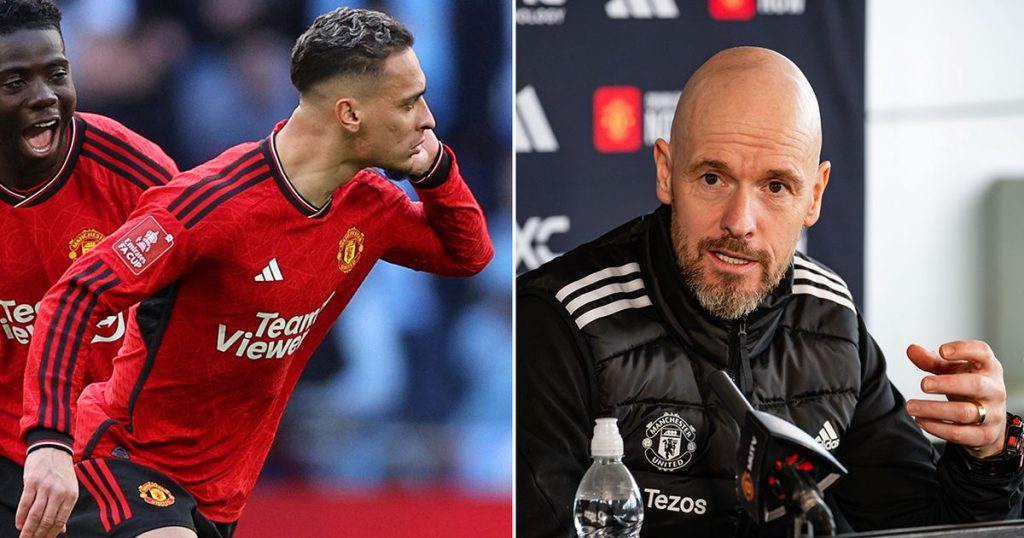Manchester United signed Antony from Ajax for £82million at the start of the 2022/23 season. This move set a dangerous precedent due to the high transfer fee. Antony’s signing became a symbol of United’s struggles on and off the pitch, as he failed to meet expectations with limited goal contributions. His performance was heavily criticized, especially during a season where United finished poorly in the Premier League. Manager Erik ten Hag urged Antony to step up and prove his potential, but the winger faced public disobedience issues.
Former player Dwight Yorke criticized United’s decision to pay a large fee for Antony, suggesting that it has made future transfers more challenging. The club missed out on signing Michael Olise due to Antony’s high cost, as Bayern Munich secured a £60million deal for him. New minority owner Sir Jim Ratcliffe expressed concerns about United’s excessive spending and indicated that the club may adopt a more cautious approach in future transfer windows. United have yet to make any signings, with efforts to secure defensive reinforcements stalled due to high asking prices.
Antony’s signing has highlighted United’s lack of success in the transfer market, with the club struggling to attract top talent while facing financial constraints. The inflated price tag for Antony has made it difficult for United to secure deals for other players, such as Olise. Ratcliffe emphasized the need for a strategic overhaul of the club’s transfer policy to ensure sustainable spending and long-term success on the pitch. United’s pursuit of defensive, midfield, and attacking reinforcements has been hampered by financial limitations and competition from other clubs.
Despite ongoing challenges in the transfer market, United remain optimistic about the future and are committed to rebuilding the squad with talented players. The club’s current transfer plans are focused on addressing key areas of weakness, including defense, midfield, and attack. The lack of signings so far in the window has raised concerns among fans, who are eager to see new additions that can improve the team’s performance. United’s ambition to compete at the highest level in English and European football requires smart investments and strategic planning in the transfer market.
Antony’s struggles at United have put pressure on the club to deliver successful signings in future transfer windows. The winger’s underwhelming performances and high transfer fee have become a cautionary tale for the club, highlighting the risks of overspending on players who fail to deliver on expectations. United’s transfer strategy moving forward will need to be more calculated and focused on acquiring players who can make a significant impact on the team. The challenges posed by Antony’s signing have underscored the need for a more balanced and sustainable approach to recruitment in order to achieve long-term success.
In conclusion, Manchester United’s signing of Antony for £82million has had far-reaching implications for the club’s transfer strategy and financial stability. The winger’s failure to meet expectations and the club’s subsequent struggles in the transfer market have raised concerns among fans and stakeholders. United’s future success will depend on their ability to make smart, strategic investments in players who can improve the team’s performance and competitiveness. The lessons learned from Antony’s signing will shape the club’s approach to future transfers and recruitment, as they seek to build a squad capable of challenging for major honors in domestic and European competitions.


